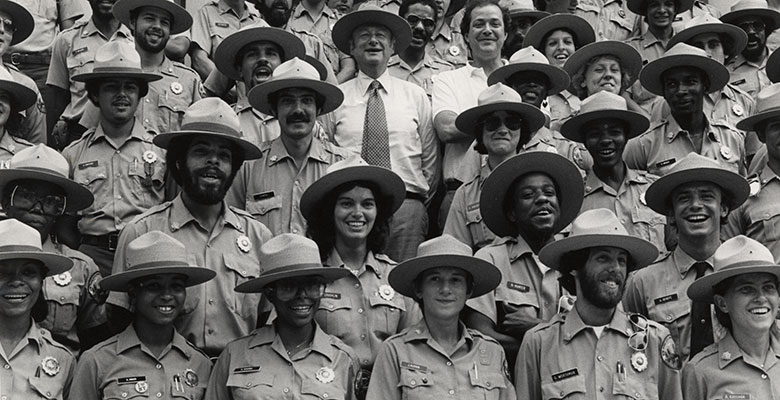
By CONRAD HOYT
Amid unprecedented and harrowing times, New York City’s Urban Park Rangers have been the backbone in supplying some semblance of refuge for the city’s residents.
“Parks have shown themselves to be pretty essential for the city in these wild times,” says Ranger Patrick Bailey. “It’s definitely a factor of the infrastructure that I think sometimes gets forgotten.”
Bailey works for the New York City department of Parks and Recreation, and as an Urban Park Ranger, has law enforcement jurisdiction and capabilities. While rangers, in normal times, have to speak to the public and maintain safety in NYC’s parks, the COVID-19 pandemic has thrown all previous norms out the window.
“In March and April, when the spike was really first getting going, our job started to include more public health idea[s] into it, just because we wanted to keep the parks safe and we needed to enforce the new guidelines that were being released, it seemed like every day,” explains Bailey.
That included going out and making sure that people were socially distant, making sure that the areas of the park that had been closed down remained closed off and people weren’t there, and handing out face coverings at distribution sites or to individuals in need.
There are three main duties to Bailey’s job. The first is simply said but more complicated in a pandemic: keeping the parks safe. “[It is] keeping them a safe space for all New Yorkers to enjoy,” he says.
The second duty is education and outreach with the public. “Normally we’re going out and doing public programs, we’re helping people in the park if they have any questions, and we’re really just trying to get New Yorkers in touch with the natural world around them, because we have such beautiful parks in the city,” explains Bailey.
The third responsibility for Bailey and other park rangers is animal rescues. If an animal is ever hurt or injured in the park, anyone in the park can call and get in touch with the rangers who will then go to the animal and assess the condition and situation, “and if need be we can transport it to a rehabilitator to get the animal the help it needs,” details Bailey.
At the onset of the pandemic, there was a lot of conflicting information going around about the virus and its severity. Bailey and his coworkers, as educators and safety-keepers, had to adopt new responsibilities into their jobs.
“There was a time when large gatherings weren’t permitted, so we had to educate people about that,” he says. “And that’s something that previously we had never really had to think about or do.”
When the Parks Department started first handing out face coverings to New Yorkers, the Urban Park Rangers were handing them out free of charge and setting up distribution sites, while also letting communities know when and where they would be across the whole city. It required a severe amount of coordination, planning, and executing, so that the job was done and done safely.
“I’d like to think that our previous experience coordinating public events really helped play a part in helping us do that,” says Bailey.
Their experience still plays a massive part, also in the fact that mediating situations between two parties and calming down intense situations is already part of the job description.
“We do have training in mediation so that does come in handy,” he adds with a solemn expression. “And with animal rescues, it’s kind of like these crises on top of a crisis, so it’s adapting to the idea that we have to do these animal rescues in a Covid-safe way. It’s adding the Covid variable to these already sort of intense situations.
Rangers have to speak with people in parks in normal circumstances, and in stressful times during the pandemic, they have had to remain even more even-keeled when speaking to park-goers frustrated by the effects of the virus.
“It’s something that really is helped by a lot of the qualities that rangers have. A lot of rangers are friendly and comfortable going up to strangers in the park,” says Bailey. “That friendly-face kind of vibe really helps out with going into the park and helping people in whatever way they need.”
Even though the days are getting shorter and the weather is getting colder, Bailey says parks will act as a refuge for New Yorkers. Though in an unstable economy, with a federal administration refusing to cede power after losing the election, and coronavirus cases skyrocketing nationally, there are many uncertainties for the workforce in America. That is no different for Urban Park Rangers.
“There’s some things that you look towards the future and you wonder how it’s all going to work out. With budget cuts and how funding is gonna happen…” Bailey trails off in deep thought.
“But I think right now it’s more of a day-to-day thing. [Rangers] are thinking about how we can get out into the park today and help people, help connect them with nature and just be there for everybody.”

Leave a Reply
You must be logged in to post a comment.